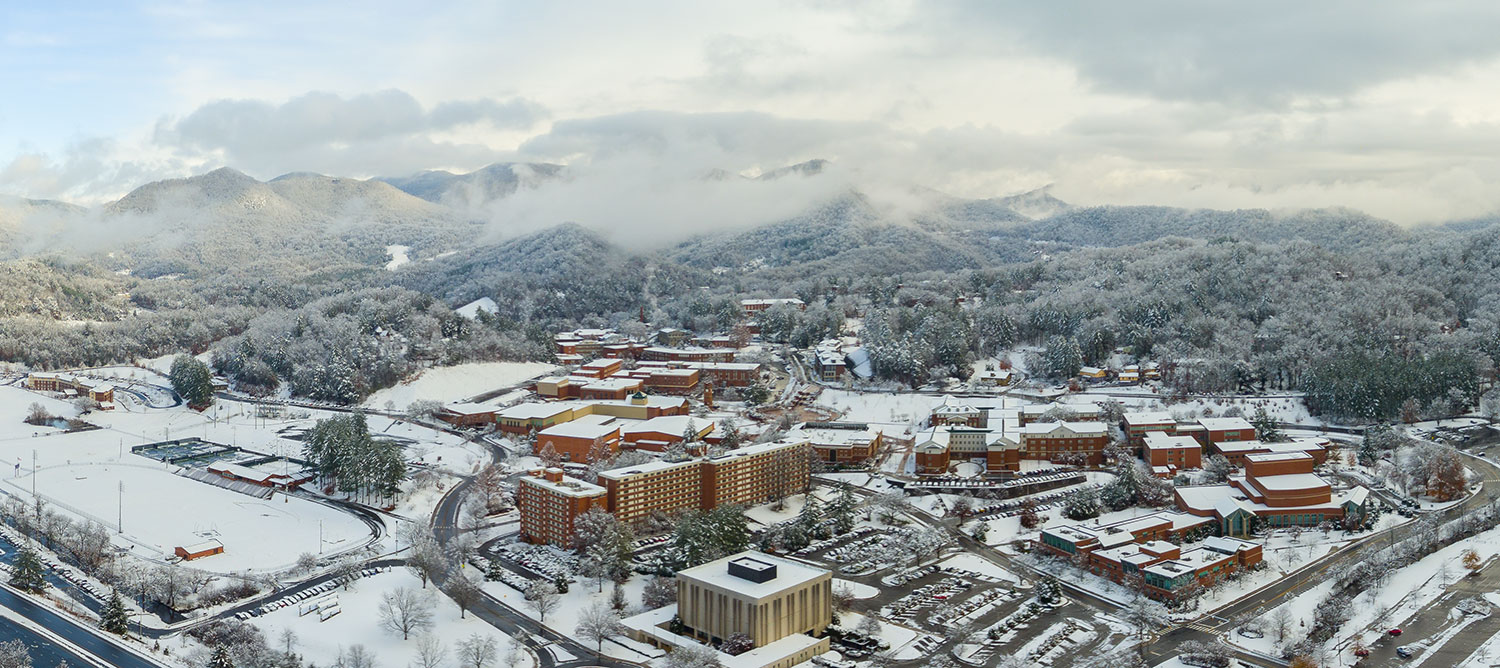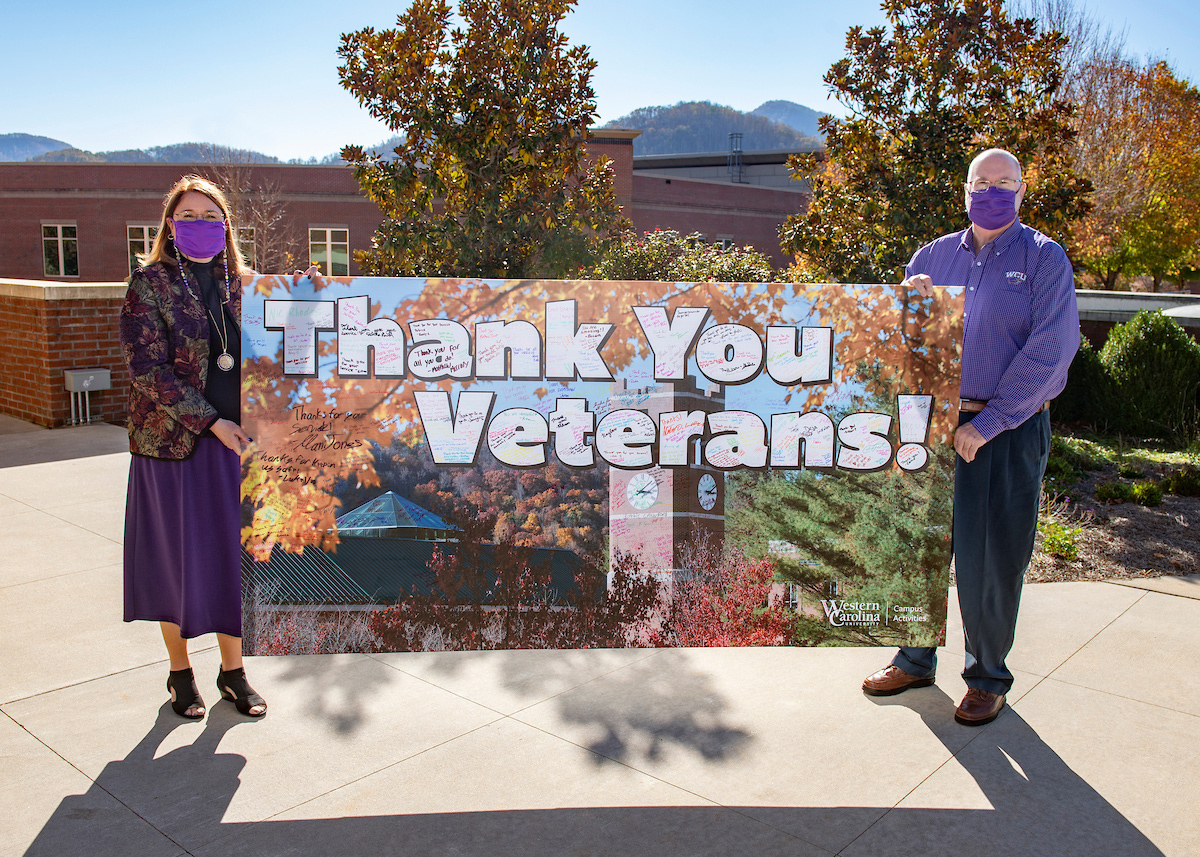- About Western Carolina
- Leadership
- Office of the Chancellor
- 10 Questions for WCU's New Chancellor
10 Questions for WCU's New Chancellor
Chancellor-elect Kelli R. Brown sat down to answer 10 questions about herself, her career and higher education...
Tell us about your career history in higher education in 15 seconds or less!
Career history in higher ed - six universities, all about student success, working with graduate and undergraduate students, making sure they either get into the careers that they want or are going off to graduate school.
You started your career in public health. What do you love about the field of public health?
Public health reminds me a lot of what I do in higher education, and public health is that place where there's an intersection. If you change people’s lives in their healthcare, just like you do in education, it transforms them. So, if someone has access to healthcare it can make their lives better. If you have access to education it makes their lives better. So, the two of them intersect very nicely. Education makes people more healthy, and if you’re more healthy you’re more likely to have an education. So, to me, it has been a wonderful marriage between public health and higher education.
What would your students have said about how you approach teaching?
I think my students would say that I’m the kind of teacher that helps them think through things, not to give them the answers but to help them come up with the answers themselves – so, problem-solving. We did a lot of case studies; we did a lot of thinking through things. Public health is one of those areas where there's not necessarily a right or wrong answer, you can go at it from different ways, and you have to look at it through many different lenses. So, I think my students would say that I help them think through problems and help them really understand their role in public health. It’s not about doing things to people, it’s doing things with your community, and with them. I think that’s what my students would say.
What do you love about your current job?
So, my favorite part of my current job is the fact that I get to help faculty, staff, and students succeed. I like being able to take away barriers so that they can go ahead and succeed. If it’s faculty, being able to go to a conference, if it’s students, being able to go to an exhibit, an art exhibit, or going to a theater production – all those things to me are the things that I love to do. I like helping people be able to succeed.
What personal values influence how you lead?
Believe that I have integrity and I think that’s important for the people around me. Honesty is very important, so I think I have to be honest with folks and they have to be honest with me. The idea of humility, I think, is really important. I’m going to make mistakes and the people around me will, so I think humility. And then, also leading by example, I think are the things that really guide how I lead and how I would like others around me to lead.
What do you love about working in higher education?
What I love about higher ed is that you're able to see folks come into something that they’re not really quite sure what they’re going to be getting, and then they leave with something that just changes their lives. We think that when you come to Western Carolina University, you’re going to come here and you’re going to succeed. You’re going to go back to your community, you’re going to go back and do good things in that workforce that you’re in, or that career that you’ve taken care of. So, what I find very valuable about higher ed and what I love about it is it changes people’s lives. I know that seems cliché, but it does, it changes people’s lives in ways that all of us don't even know until later on in their careers.
What are some of the challenges facing higher education today?
We’ve got a lot of challenges facing us in higher ed today, and I think a lot of it is about public perception. I think that we have to make sure that we’re accessible, that we don't get the tuition and the fees and the cost of higher education so that the regular person can’t attend. That's one of the things I love about what is happening at WCU with NC Promise. It’s really important for myself and other folks in higher education to really talk to folks and explain to them what that value is, and it's not just getting a degree but it’s adding to the community, and we’ve got to do more of that, and not be afraid. Not be afraid that, yes, it's going to cost a little bit, but in return, the return on investment is going to be so much higher. I think we’ve got to do a better job of basically selling and telling the story of why education is so important.
What are some of the opportunities ahead for higher education?
I think that the opportunities that we have, one of them is going to be how do we use technology. So, how do we think about using technology to help students solve problems? The tech, the information, is at our hands, you know, you got your phone in front of you, you can find the information. But the key thing is what do you do with that information. So, I think the opportunities we have is how do we work with young people, how do we work with those that are in the university to help them take that information and critically use it for whatever profession that they’re in. So, to me the future is not the information itself, but how we use that information to solve complex problems that are going to change what we do and how things happen in our area, in our region, and in the world.
Tell us something about you that people don’t know.
The thing that most people don't know about me, it's not on my resume, you’ll never see it anywhere, is the fact that I was Miss Rodeo Ohio, and that I also participated in the Miss Rodeo America contest. I have the hat, the belt, I got the whole shebang that I can share someday.
How do you feel about the color purple?
The color purple? Absolutely the most beautiful color in the world!

